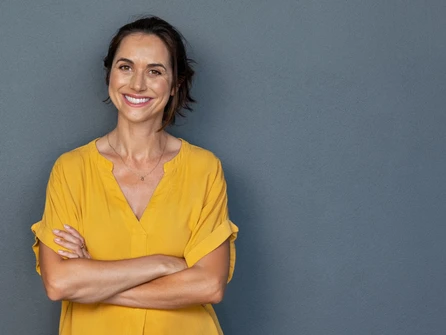Member Support
Oct 14, 2023 7 min readI had a car accident & I need help
If you have been in a car accident recently, Noble Navigators can help you review the most important things you can do for your healthcare, insurance and vehicle safety.

Introduction
Making well-informed decisions following an accident or injury can improve healthcare outcomes, protect your rights and save you time, money and hassle.
Purposes
This article covers some of the helpful practices after a car accident and can serve as an outline for a Member Services conversation you can have with a Navigator 24/7.
Table of Contents
Topics for Review
Scene of Accident
If you are experiencing an emergency or you feel unsafe, please call 911 to speak with your local emergency services before contacting Noble Navigators. In the moments immediately following a car accident people may be injured or disoriented and there may be an increased risk of further damage or injury. For example, getting out of a car on a busy highway to check damage or failing to pull all the way over while waiting for assistance may create additional risk of further accidents or injury.
Emergency Services
If you are experiencing an emergency or you feel unsafe, please call 911 to speak with your local emergency services before contacting Noble Navigators. Do not assume that someone else has called 911 or that an app or device has automatically initiated a response.
Current Location
If you do not know your location, it may be helpful to use your phone or other devices to display your current location, if it is safe to do so. If that is not possible, you may be asked to describe your surroundings to emergency dispatchers. Most emergency services dispatch centers will request that you stay on the line until emergency services have arrived.
Medical Care
It is important to seek appropriate medical attention after a car accident. Injuries may result from impact, airbags, flying items in the cabin of the car or other situations. People involved in car accidents are sometimes in a state of "shock". The impact of an accident and sometimes the forceful ejection of airbags can leave people substantially disoriented.
Delayed Symptoms
Some injuries may be obvious and require immediate emergency care for on-scene first responders or more serious care provided by a hospital's emergency department. Some types of injuries may not be immediately obvious after an accident but may develop in the hours or days following the accident. Depending upon your initial care, your medical providers may ask you to track conditions for several days following an accident to help detect symptoms that may take time to become evident.
Medical Care
Vehicles & Insurance
Once you are out of immediate danger and have received any on-scene medical care, you may need to consider other steps to secure your valuables, exchange information with other parties and contact your insurance.
Exchanging Information
If you are in an accident that requires a police or emergency response, the responding officers may wish to record everyone’s information and then make it available through the police report, rather than encourage parties to try to establish one on one contact at the scene. In situations where no police or emergency response is necessary, the parties may be required by state law to exchange information, including contact information, license plate number, driver's license number, insurance policy company name and phone number.
Contacting Your Insurance
Auto insurance companies typically request drivers contact them at the earliest safe opportunity after a car accident. Your insurance company may have a toll free number or an app that lets you initiate an accident report or insurance claim.
Documenting the Damage
Many insurance companies have their own app which can be downloaded to your phone. Apps allow the driver to follow a series of predetermined steps to document damage to the car, including taking pictures and sharing them through the app.
Describing the Situation
Insurance companies will also typically request that you provide a basic description of what happened from your perspective. This may include asking for street names, directions, driving speed and other things you did or observed.
Requesting a Police Report
If there was a police or emergency response to the accident, your insurance company will very likely ask you to request a copy of the police report and send it to the insurance company when available.
No-fault
Some states have "no-fault" insurance requirements which means who is at fault in an accident may not affect how some expenses are paid out.
Police Citations or Tickets
Sometimes responding law enforcement officers will issue citations to drivers involved in traffic accidents. Citations may include speeding, operating a vehicle in an unsafe manner, driving while under the influence and many other similar violations.
Securing Valuables
If your car is going to be towed from the scene of an accident it may be unlocked in transit or the repair estimation phase. Some types of damage will leave the car interior exposed to the elements. You may wish to collect important papers from your glove box, phones, computers and other valuables, including things stored in the trunk.
Vehicle Towing
Some vehicles involved in accidents may not be safe or legal to drive. If the car must be towed from the scene, the local law enforcement may contact towing companies or you may have to find and contact a towing company yourself. It can be important to use licensed or qualified tow truck operators because improper towing methods or connections can seriously and permanently damage vehicles and cause injury.
Towing Destination
You may have your vehicle towed to your preferred repair facility or one approved or recommended by your insurance company.
Repair Estimates
Repair facilities will typically evaluate the car and estimate what parts and labor will be necessary to repair the vehicle. Insurance companies have different policies for getting estimates and approving work.
Repair Reimbursements
Insurance companies can pay the repair provider directly or issue a payment to you as reimbursement.
When a Car is "Total Loss"
When the damage to a car makes it unable to be made safe again or the damage exceeds the value of fixing it, the car may be classified as a "Total Loss" or "totaled". In these situations insurance companies will wish to reimburse you the value of your car at the time of the accident.
Temporary Transportation
Losing the use of a car for some people can pose an immediate challenge to day-to-day transportation. Some insurance plans include covering the cost of rental cars and some repair facilities may have loaners.
Rental Cars
Some insurance plans include covering the cost of rental cars. It can be important to check with your insurance company about their policies and procedures before signing a rental car contract.
Loaners
Some repair facilities like dealerships may have loaner vehicles you can use for a brief period while your car is being repaired.
Attorneys
Accidents involving injuries, vehicle or property damage may require sworn statements or other legal activities that could have longer term consequences. You have rights and responsibilities that an attorney may be able to help you understand more clearly. Your Navigator can refer you to an attorney at any time.
Other Attorneys
If you have been in an accident, it is possible that attorneys representing other drivers or their insurance companies may attempt to contact you to make a statement. Your insurance company would likely prefer you to speak with only your insurance company or your own personal attorney.
Your Attorneys
What you stand to lose
Physical Injury
People who have been in an accident may experience a variety of injuries, ranging from minor cuts to serious injury and even loss of life.
Decreased Asset Value
Vehicles involved in accidents decrease in value quickly. Most vehicles after accidents do not return to their original resale value after repair and don't retain value as well over time.
Legal Issues
There may be more substantial legal issues when there has been serious injury or loss of life including civil and criminal legal action. Parties of car accidents also sue each other for additional damages. Some types of insurance may not cover all damages.
Increased Costs
When you are in an accident, you may find that your insurance costs go up as a result. People being sued as a result of accidents may also find that their insurance covers some, but not all of the expense.
Day-to-day Disruption
Getting your vehicle repaired may require you to use other forms of transportation.
Member Services
Noble Navigators provides guidance, direct action and ongoing support services for more than a dozen important life situations, including providing care for others. If you or someone you know needs assistance, please contact Noble Navigators 24/7 for live assistance
- Expert Review
- One-page Plan
- Automatic Follow-up
- Direct Navigator Actions
- Backup Services
Behind the Scenes Information
Accidents can be brief events that cause relatively minor damage. Accidents can also have both immediate and ongoing impacts to legal, healthcare, financial and transportation logistics issues. Making well informed timely decisions can help.
Key Terms
Soft Tissue Injuries
Some types of injuries involve damage to muscle, tendon or ligament that may take one or more days to be fully evident. Some types of soft tissue damage may not be clearly visible on diagnostic imaging immediately following an accident.
Shock
Shock is a physical and emotional state that often accompanies serious injury or trauma. The effects of shock may cause patients to be disoriented and less helpful in their own care, making the detection of some types of injuries more difficult.
Ticket or Citation
A ticket or citation may be issued by law enforcement for infractions like speeding, unsafe driving or operating vehicles with safety violations.
No Fault Insurance
18 States have "no-fault" insurance systems where who or what caused an accident does not play a role in compensation. Each driver is compensated by their own insurance company.
Against Medical Advice
AMA or "against medical advice" is a term used by hospitals or medical care providers when patients refuse medical treatment against the advice of a medical professional. Patients refusing such treatment are often requested or required to sign a document indicating they are knowingly acting against medical advice.
Privacy
No last names or other personally identifiable information are used in published case studies. All photos are stock photography unless specified.








 Call
Call Text
Text